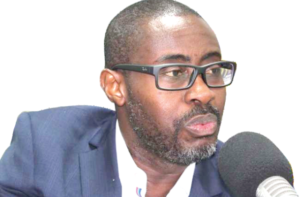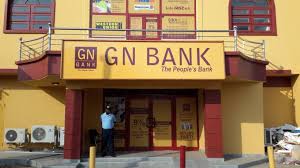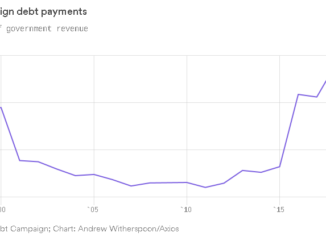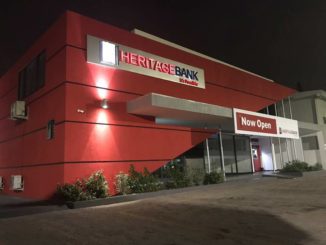A private legal practitioner, Mr Ace Ankomah, has said the shareholders of the now-defunct Heritage Bank, should challenge the Bank of Ghana’s revocation of their licence if they feel the regulator treated them unfairly.
Among other things, the central bank said the source of Heritage Bank’s capital for its establishment was suspicious, adding that the majority shareholder, Seidu Agongo, failed the “fit and proper person” test, and, so, could not own a bank, since he was involved in criminal prosecution as far as the GHS271 million Ghana Cocoa Board (COCOBOD) fertiliser scandal was concerned.
Announcing the revocation of the licence on Friday, 4 January 2019 at a press conference, the central bank Governor, Dr Ernest Addison, said: “Under section 16 (1) (a) (7) and (8) of Act 930, the Bank of Ghana may revoke a licence and appoint a receiver under section 123 of the Act where it is satisfied that an applicant provided false, misleading or inaccurate information in connection with the application for a licence or suppressed material information, and may, in cases of emergency, or in the public interest, revoke the licence of the bank without notice. Further, sections 9 and 12 of Act 930 authorise the Bank of Ghana to revoke a licence if it considers that significant shareholders of a bank are not suitable”.
Responding to the central bank’s action, the ex-Board of Directors of Heritage Bank, chaired by Prof Kwesi Botchwey, said, among other things that: “As a Board, we had engaged with the Bank of Ghana including the governors on numerous occasions, ALL in relation to meeting the capital requirement, and at no time had the issues now being given as grounds for the revocation of the bank’s licence been raised. Indeed, as recently as 24 December 2018, the Bank of Ghana had given Heritage Bank clearance for a potential investor who had brought proof of funds to transfer the money. We had considered and applied for consideration under the Ghana Amalgamated Trust scheme and had received positive signals. We were literally in conversation with our prospective investor when the bank was summoned at about 12 p.m. to a meeting at 2 p.m. and handed a letter revoking the bank’s licence.
“Heritage Bank was by the Bank of Ghana’s own admission, a solvent bank. It NEVER received liquidity support from the Bank of Ghana. Its corporate governance record had never been impugned by the Bank of Ghana. We believe we have been done a grave injustice and a terrible precedent set that does not bode well for the future. We have dealt herein only with matters affecting the Board’s responsibilities that needed to be clarified to set the record straight, and this, without prejudice to whatever legal options the shareholders may wish to avail themselves of in order to get justice for the even greater harm done to them”.
Speaking on the licence revocation of Heritage Bank on Accra-based Joy FM’s news analysis programme Newsfile on Saturday, 12 January 2019, Mr Ankomah told host Samson Lardy Anyenini that: “Well Samson, I’ve read the statement. I’ve seen some preliminary responses from the Bank of Ghana. Although I’ve proclaimed Act 930 instituted the Bank of Ghana as ‘a little god’ in Ghana, it doesn’t leave its act unchallengeable”.
“The concept of an absolute unchallengeable discretion does not exist in Ghana”, Mr Ankomah noted, adding: “Article 296 throws that out the window”.
“And, so”, he continued: “If it is, indeed, the case that the Bank of Ghana did not comply with its law in arriving at the conclusion, there is an opportunity to deal with that”. “You take the Bank of Ghana on in the proper arbitral circumstances”, Mr Ankomah explained, reiterating: “And, so, if, indeed, there is the case that they didn’t follow the law, or they acted capriciously and unfairly and without candour, then I think that there is a proper cause of action to be taken against the Bank of Ghana”.
“And it will be serious egg on the face of Bank of Ghana if an arbitral panel sits and says: ‘Bank of Ghana, this was wrong, what you did was unfair, unjust; restore their licence’” the lawyer added.
Mr Ankomah said such a challenge against the Bank of Ghana would not be the first of its kind.
“Years ago”, he recalled, “The Bank of Ghana simply revoked the licence of a company in Ghana and purported to liquidate it with the stroke of a pen. The matter went to court, the Bank of Ghana conceded that they were wrong, and everything was restored to the entity. And, so, there’s sufficient precedent, and I think that if, indeed, it is the case that the laws of Ghana have been breached by the Bank of Ghana itself, to the extent that the sections of the law that are being cited are applicable to their situation … you see; because the notice requirements differ, and there are certain circumstances under which the Bank of Ghana, operating in stealth, is allowed, you know, because sometimes the hammer has to go down quickly and giving notice might be counterproductive”.
He, however, caveated that: “I’m not saying that’s what happened in this case, but if, indeed, there should have been formal notice requirement that: ‘We’re going to shut you down’, and the Bank of Ghana did not do that, let’s challenge it, let’s put the Bank of Ghana to the test, let the arbitrator sit on it and then determine the wrong thing”.
Heritage Bank has now been added to the all-new state-owned Consolidated Bank Ghana Limited, which was initially formed by the regulator, with five collapsed local banks.
Also, the licence of Premium Bank was revoked. A total of nine local banks have gone under since August 2017. All the banks were given up to 31 December 2018 to recapitalise from GHS120 million to GHS400 million. Twenty-three were successful by the deadline. Five of them are being bailed out by the government with a GHS2 billion fund via a special purpose vehicle known as the Ghana Amalgamated Trust (GAT), which will use privately-managed tier-two pension funds of Ghanaian workers.
–
Classfmonline




